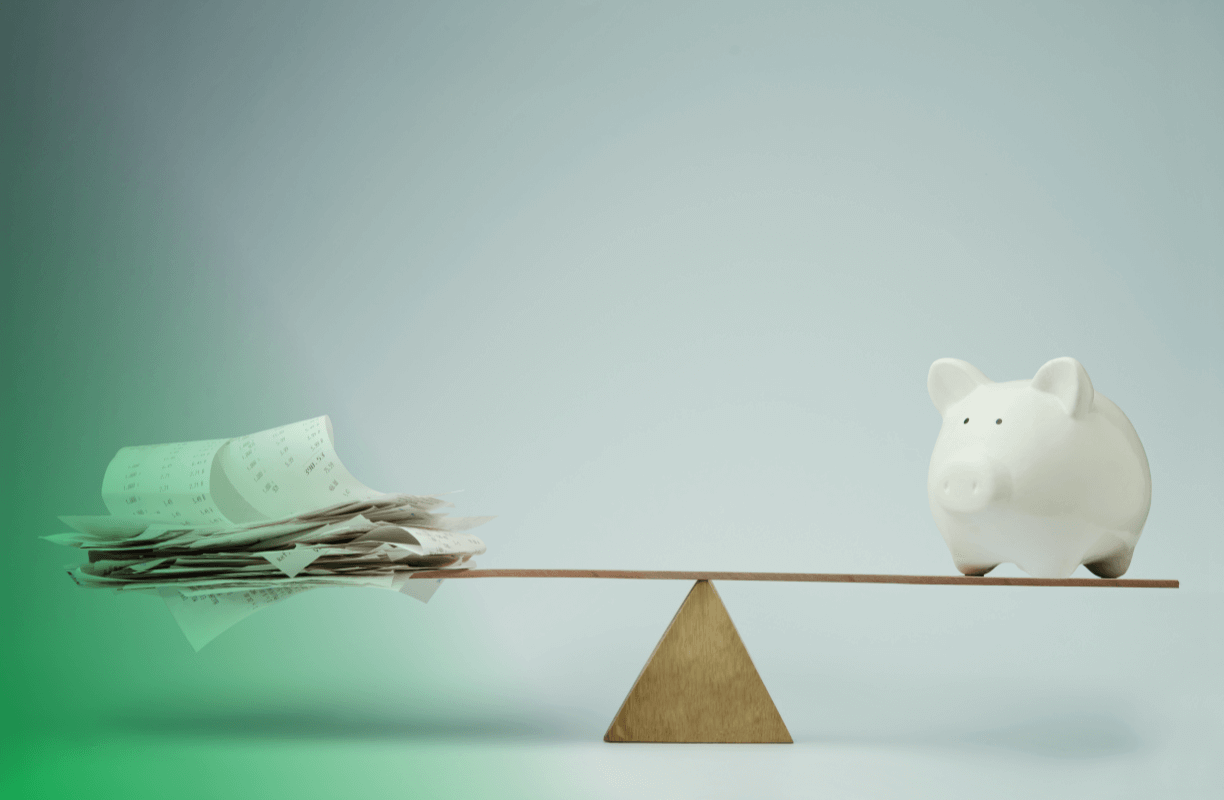You are now leaving the Bright website and entering a third-party website. Bright has no control over the content, products, or services offered, nor the security or privacy of information transmitted to others via their website. We recommend that you review the privacy policy of the site you are entering. Bright does not guarantee or endorse the products, information, or recommendations provided on any third-party website.
Both paying off debts and saving to build emergency funds are necessary to achieve good financial health. Understanding the benefits of both can help you reach your financial goals and develop a strategy to manage your personal finances.
What are the benefits of building more savings?
With savings comes peace of mind, a sense of security and the ability to respond to unexpected events. Some of the benefits of building more savings are:
1. Having an emergency fund when you need it. An emergency fund is built for unexpected expenses. They’re best used for major bills that come out of the blue, like car repairs or medical bills. Ideally, your emergency fund is designed to cover a job loss and should have enough to cover at least three to six months of expenses. Funds like these can help you avoid credit cards, which can incur the costs of high interest rates.
2. Earning compound interest. Compound interest is financial magic. It’s when you earn interest on your savings (or your investments), then automatically add that earning to your savings (or investments) and then automatically have more money earning you more interest, which accelerates over time.
3. Planning for retirement. It’s never too soon to plan and save for retirement. The more you save and invest now, the more time your money has to grow. Many people start saving for retirement with special retirement accounts, like 401(k)s.
What are the benefits of paying off debts?
It takes a lot of work and motivation to get rid of debt. Let's look at some of the benefits of getting debt free. Some of the benefits of paying off debts are:
1. Improving your credit score. When you pay off your cards on time and in full on a regular basis, you’ll see your credit score go up. With a healthy credit score, you’ll see more doors open, with more access to credit and loans, with better rates and better perks.
2. Increasing your financial security. Living a debt free life can help you avoid financial peril. The sooner you clear your debts, the more money you have to save and invest for emergencies and your future.
3. Getting more flexibility. When you pay off your credit cards, you’ll have more credit available to do things you want to do, when you want to do them.
What is the difference between good and bad debt?
Not all debts are the same. When you’re thinking about which debt to pay off first, consider which ones are bad and which ones are good.
Good debt actually works for you, building wealth and generating income over a period of time. Some good examples of a good debt are:
1. Student loans. Student loans make it possible for people to get an education and increase their long-term earning potential.
2. Mortgages. Taking a mortgage is also considered a good debt. You can build equity in an asset, and real estate is typically considered a secure and safe investment that grows reliably over time.
3. Small business loans. With a small business loan, you can grow a profitable company, earn income from your initial debt and generate revenue in the long term.
Bad debt is typically defined as the debts that don’t generate income or increase in value. Sound familiar? Some examples of bad debts are:
1. Credit card debts. Credit debt can be expensive. If you don’t pay your full balance on time every month, you’ll pay interest on the debt you’ve taken on, with no growth or income attached to it.
2. Car loans. The minute you drive a new car off the lot, it drops in value. That’s a good definition of a depreciating asset, aka a bad debt. The type of car you buy can make a bad loan worse too: choose one that won't depreciate so fast.
3. Payday Loans. Payday loans are an all-too-common type of bad debt. These small loans, usually due at your next payday, with exorbitant fees and interest rates, from $10 to $30 for every $100 borrowed. Avoid these whenever you can.
Is it better to pay off debt or build more savings in 2022?
1. High prices from inflation will continue: you may have less to contribute to your savings and have to rely more on credit cards.
2. The uncertainty of the Covid-19 pandemic continues: try to keep building your savings as a safety net.
3. More people are switching jobs as the Great Reshuffling continues: aim for flexibility, with less debt and more savings, so you’re ready when it’s time for a change.
How Bright pays off debts and builds more savings for you
Bright can pay off your cards faster and build more savings at the same time. Bright uses its own patented system of 34 algorithms to study your finances and learn about your goals, making smart payments for you and building your savings week by week.
Bright does it all for you and even adjusts automatically when your finances shift.
If you don't have it yet, download the Bright app from the App Store or GooglePlay. Connect your bank accounts and your credit cards in a snap, set a few goals and let Bright get to work.



